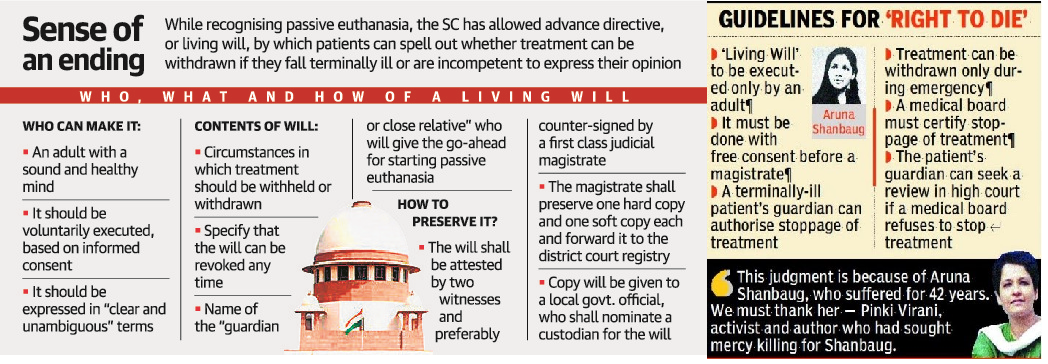PREVIOUS
Passive euthanasia
March 15 , 2018
2450 days
1221
0
- The Supreme Court has given landmark judgement by providing legal sanction to passive euthanasia if patients slip into irreversible coma.
- The Supreme Court (SC) allowed passive euthanasia and right to give advance medical directives or ‘Living Wills’.
- The ruling was given by five-judge Constitution Bench led by Chief Justice of India Dipak Misra.
- The judgement by five-judge Constitution bench is based on the opinion that Right to life includes right to die with dignity.
- The court’s ruling was pronounced on a 2005 plea filed by Prashant Bhushan on behalf of NGO Common Cause that sought recognition of a living will so that an individual could exercise the right to refuse medical treatment at a terminally-ill stage of life.

- Passive euthanasia is an act of withdrawing or withholding medical support to dying patient who has no hope for revival or cure.
- Active Euthanasia is the act by which a person is killed by being given an overdose of pain killers or prescribed drugs, where there is no hope for further recovery. The Supreme court has firmly refused to condone active euthanasia.
Leave a Reply
Your Comment is awaiting moderation.


